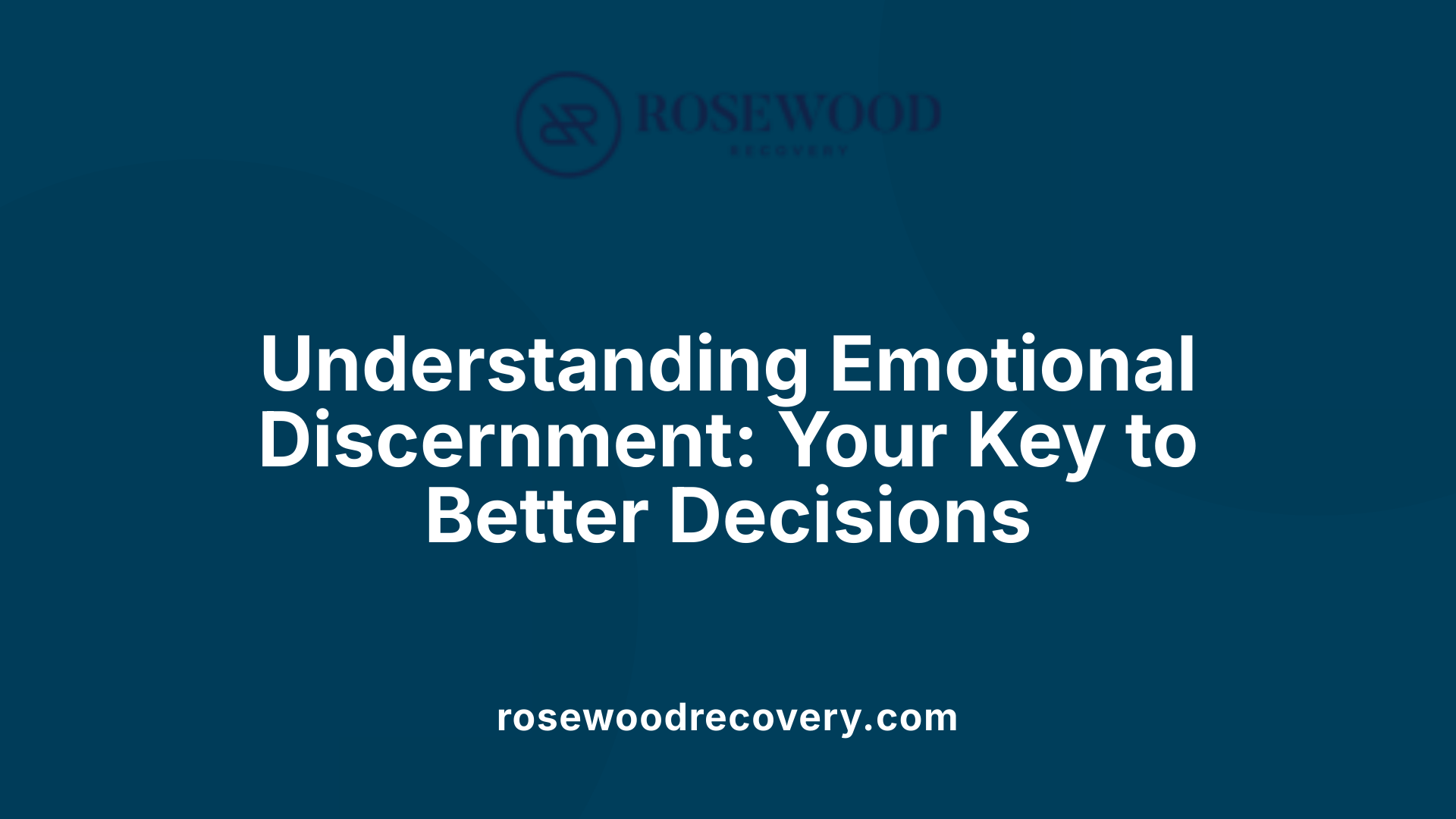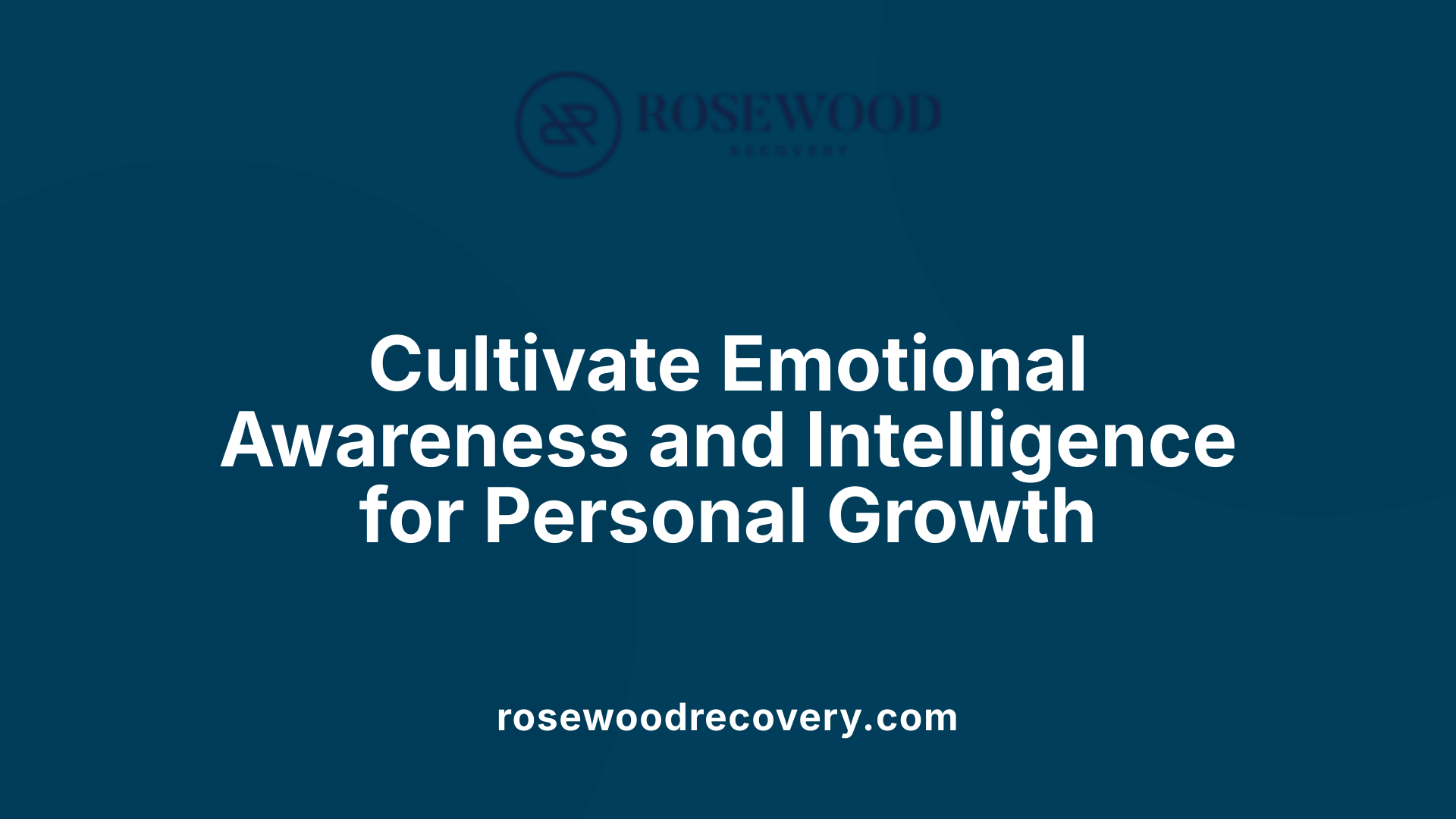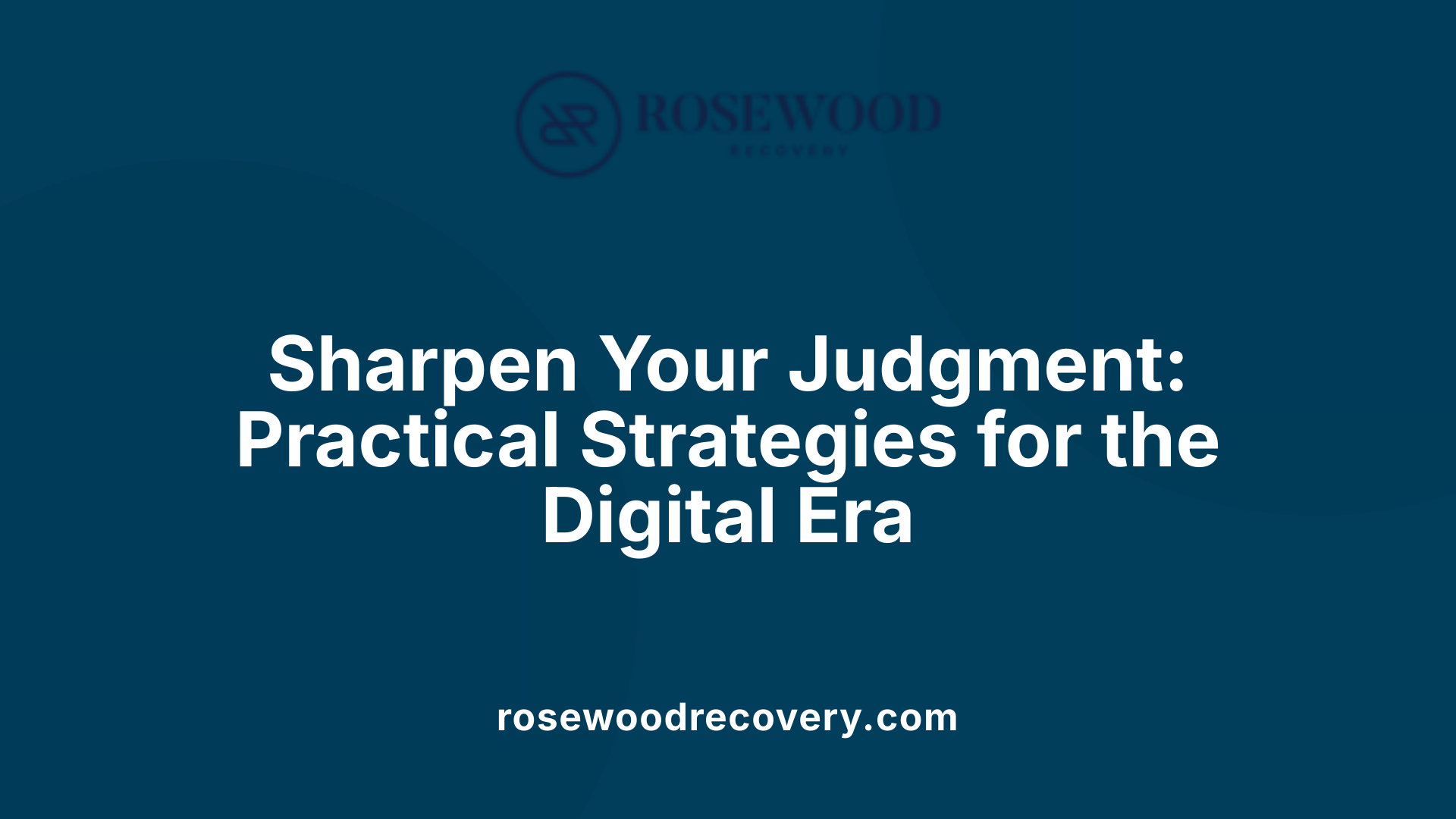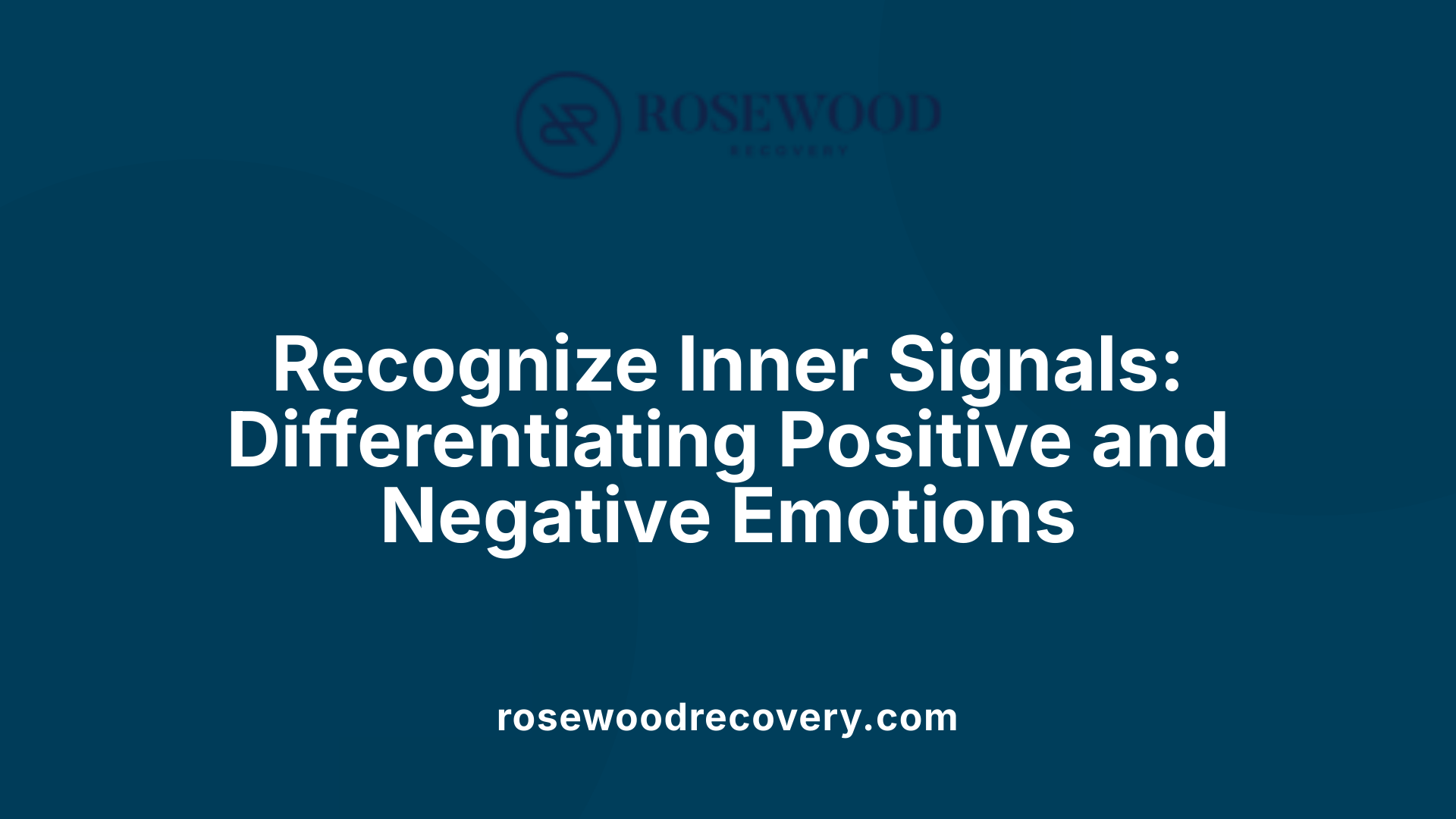Understanding Emotional Discernment: The Foundation for Mindful Interactions
Practicing emotional discernment is essential for navigating the complex tapestry of daily interactions with clarity, compassion, and purpose. This skill involves recognizing, understanding, and authentically responding to both our own emotions and those of others. By cultivating awareness of inner states, individuals can make thoughtful choices that align with their values and spiritual principles, ultimately fostering healthier relationships and personal growth. This article explores practical strategies rooted in spiritual traditions, psychological insights, and mindfulness techniques to help you integrate emotional discernment into every day.
Defining Emotional Discernment and Its Role in Healthy Decision-Making

What is emotional discernment?
Emotional discernment is the ability to recognize, understand, and interpret one's feelings accurately. It involves paying close attention to the subtle differences in emotional states—such as anger, sadness, joy, fear, or numbness—and understanding the needs and motivations behind these feelings.
This skill also extends to perceiving the emotions of others, fostering empathy and compassion. Emotional discernment is more than just feeling; it’s about thoughtfully analyzing what those feelings reveal about oneself and the situation.
How does it guide healthy choices?
This awareness helps guide individuals in making decisions that are aligned with their true needs and values. When people discern their emotions clearly, they can identify whether their reactions come from genuine desire or from fear, trauma, or external pressures.
Healthy decision-making emerges from this clarity. For example, recognizing that feelings of anger may stem from feeling undervalued can prompt a person to communicate boundaries more effectively, rather than reacting impulsively or retaliating.
Through emotional discernment, individuals act with intention, choosing responses that promote well-being and respect—both for themselves and others. It reduces knee-jerk reactions and promotes a reflective approach that considers long-term impact.
The significance of emotional clarity in relationships and personal growth
In relationships, emotional clarity fosters mutual understanding and reduces conflicts caused by misinterpretations or unchecked emotions. When you understand what you feel and why, you communicate more effectively and set healthier boundaries.
For personal growth, emotional discernment empowers ongoing healing and self-awareness. It helps uncover hidden hurts or unmet needs, guiding individuals to address underlying issues rather than simply reacting to surface feelings.
Cultivating this skill leads to deeper self-knowledge and resilience. It enables a person to navigate life’s challenges with calm and wisdom, making choices based on genuine insight rather than reactive impulses.
In essence, emotional discernment is a vital life skill. It nurtures healthier relationships, promotes inner peace, and supports authentic growth by helping us align our actions with our true selves.
Building Emotional Awareness and Developing Emotional Intelligence

How can I develop emotional awareness and emotional intelligence skills?
Developing emotional awareness and emotional intelligence (EI) is a gradual process that involves becoming more attuned to your inner emotional landscape and enhancing your ability to manage relationships effectively. A fundamental step is practicing mindfulness and reflection. By regularly pausing to check in with your feelings—whether through meditation, journaling, or quiet contemplation—you begin to recognize patterns and understand the drivers behind your emotional reactions.
Identifying your Top 2 feelings that tend to show up frequently and your Bottom 2 that are less common can provide insight into your emotional landscape. This awareness helps you manage reactions more intentionally, reducing impulsive behaviors and fostering resilience.
Seeking feedback from trusted friends, colleagues, or mentors is another valuable practice. Others often observe aspects of our emotional responses that we might overlook. Constructive feedback can illuminate blind spots and guide growth.
Consistency and motivation are vital. Connect your emotional development efforts to your personal values or organizational goals to maintain enthusiasm. For example, recognizing that emotional intelligence improves team collaboration or personal well-being can reinforce your commitment.
Creating a supportive environment where curiosity about emotions is encouraged—whether at work, school, or within your community—can accelerate your growth. Cultivating an open dialogue about feelings and experiences contributes to a culture of understanding and continuous learning.
Through daily practice, reflection, and openness to feedback, your capacity for emotional awareness and intelligence will deepen. Over time, this fosters greater empathy, better decision-making, and healthier relationships both personally and professionally.
Practical Steps to Enhance Discernment in a Digital Age

What are practical steps to improve discernment skills?
In today’s fast-paced digital environment, honing discernment is more important than ever. There are several practical strategies to develop sharper judgment and clearer perception.
First, it’s essential to practice critical evaluation of sources. Always question where information originates and verify facts through multiple reputable channels. This habit helps prevent the spread of misinformation and builds trust in reliable content.
Second, asking thoughtful questions deepens understanding. When encountering new information or complex topics, questions like 'What is the source?', 'What are the potential biases?', and 'How does this align with what I already know?' promote active engagement and clearer insight.
Third, cultivating mindfulness and empathy plays a vital role in informed decision-making. Being present helps recognize emotional reactions that may color judgments, while empathy opens awareness to different perspectives, enriching discernment.
Additionally, maintaining a curious and open mindset—often called a beginner’s mindset—fosters continuous learning and openness to changing circumstances. This attitude helps individuals adapt and refine their judgment over time.
Using interactive tools, including AI-driven platforms and personalized learning resources, can further enhance discernment skills. These tools allow for tailored practice and immediate feedback, supporting growth in a complex, tech-driven landscape.
By integrating these steps—rigorous source evaluation, probing questions, mindfulness, curiosity, and technological engagement—individuals can more effectively navigate information overload, develop sound judgment, and make wiser choices in the modern digital world.
Applying Discernment in Daily Life Decisions

How do we use discernment in daily life decision-making?
In everyday situations, practicing discernment extends beyond evaluating the factual details of a choice. It involves a sensitivity to spiritual clues and our inner feelings, such as gut reactions, visceral responses, or emotional clarity. Recognizing these signals helps us understand whether a decision aligns with our higher purpose and spiritual values.
One effective way to deepen discernment is through prayer and reflection. The Ignatian Examen, a contemplative practice, encourages us to review our day or specific moments to identify where we experienced feelings of consolation—peace, joy, love—and desolation, such as confusion, unrest, or emptiness. These feelings often point toward God's presence or absence in our decision-making process.
Consulting trusted friends or mentors can also aid in discernment. Sharing concerns, asking insightful questions, and seeking external perspectives can clarify our motives and help us weigh options in light of our spiritual beliefs.
Aligning choices with personal and spiritual values is crucial. For example, when faced with a decision, asking whether the options promote truth, justice, kindness, and purity can serve as moral filters. Biblical guidance, such as Philippians 4:8, encourages us to focus on qualities like nobility, righteousness, and admirable virtues, which reflect God's character.
As we progress through different life stages, our discernment needs evolve. What may be appropriate in youth—such as exploring careers and relationships—may shift in middle age to managing responsibilities and priorities, while later years may focus on wise use of remaining resources.
Using spiritual practices like prayer, meditation, and scriptural reflection helps us tune into God's guidance. Spiritual direction and community involvement further give us support to interpret spiritual signals correctly.
Ultimately, daily discernment is about making authentic choices rooted in trusting God's wisdom. It encourages us to slow down, listen inwardly, and act with confidence that our decisions, aligned with divine guidance, will foster growth, purpose, and inner peace.
Practicing Emotional and Spiritual Discernment Simultaneously
How can one practice emotional and spiritual discernment?
Practicing both emotional and spiritual discernment involves a dedicated process of self-awareness, reflection, and connection with a higher purpose. It begins with intentionally creating space for prayer, meditation, or quiet contemplation regularly, helping to deepen your understanding of your inner world and your relationship with God or the divine.
Mindfulness plays a critical role; by paying attention to your thoughts, emotions, and bodily sensations without immediate judgment, you develop clarity about what you are experiencing. Recognizing and managing your feelings—such as fear, anger, or joy—helps distinguish between superficial emotional reactions and deeper spiritual insights.
Seeking guidance from trusted spiritual mentors, community, or reflective tools like the Ignatian Examen or Lectio Divina can further clarify what your emotions and spiritual nudges might be pointing toward. Honesty with oneself—the willingness to face both vulnerabilities and truths—is crucial in this journey.
Maintaining humility, openness to learning, and surrendering control allows you to receive divine wisdom more freely. Over time, this integrated practice enhances your ability to make decisions that align with both your emotional truth and spiritual calling, fostering growth and resilience in everyday life.
Identifying Positive and Negative Internal Emotional Movements

How can I differentiate between positive and negative internal emotional movements?
Understanding the distinctions between positive and negative internal emotional responses is crucial for spiritual growth and emotional health. In Ignatian spirituality, this process involves paying attention to feelings of consolation and desolation.
Consolation refers to experiences that inspire love, peace, and joy. These states often indicate alignment with your higher self and God's presence. Conversely, desolation involves feelings of darkness, confusion, or restlessness, which may signal internal struggles or disconnection from spiritual roots.
To discern these signals, practitioners are encouraged to engage in regular spiritual reflection, particularly through the practice of the Daily Examen. This reflective exercise helps you pause, review your day, and identify moments of consolation and desolation.
Recognizing emotional states that foster growth or struggle also involves observing your reactions during decisions or challenging situations. Feelings of calm confidence and inspiration typically promote constructive action, while feelings of anxiety or discouragement can signal the need for further reflection.
By cultivating awareness of your internal emotional landscape, you can better discern which pathways support your well-being and spiritual journey. This awareness allows you to respond with compassion and intentionality, fostering deeper self-understanding and alignment with your divine purpose.
Tools like prayer, meditation, and the Examen support ongoing awareness, helping you identify and respond to signals of consolation and desolation effectively. Over time, this sensitivity strengthens your ability to navigate life’s choices with clarity and faith.
Influence of Spiritual Principles on Decision-Making Processes
How does spiritual principles influence emotional and spiritual decision-making?
Spiritual principles serve as a guiding compass during decision-making, helping individuals act with integrity, compassion, and humility. These principles foster reflection and prayer, facilitating a connection to divine guidance and inner wisdom. When making choices, people often turn to spiritual values like righteousness, truth, and love to evaluate options.
Incorporating spiritual disciplines such as prayer, meditation, or seeking counsel from faith communities supports clearer understanding of what aligns with higher purpose. This process encourages trust in divine timing and wisdom, which can diminish anxiety and foster serenity amid uncertainty.
Furthermore, spiritual principles deepen emotional resilience by offering a moral framework that reinforces positive decision-making. They help in recognizing what truly matters, guiding individuals to reflect on their motives and the potential impact of their actions. Consistent practice of these principles and community involvement strengthen a person’s ability to navigate complex situations with confidence.
Ultimately, integrating spiritual values into choices ensures actions are aligned not just with personal goals but also with divine will and ethical standards. This alignment nurtures authenticity and fosters a sense of peace and fulfillment in life’s decisions.
Embracing the Path of Conscious, Spiritually Grounded Living
Practicing emotional discernment in daily interactions transforms not only personal well-being but also enriches our relationships and community life. By intentionally cultivating awareness, grounding ourselves in spiritual principles, and engaging in reflective practices such as prayer and the Examen, we can navigate life's complexities with greater clarity and compassion. Recognizing subtle emotional and spiritual cues helps us act authentically and in harmony with our higher self and divine guidance. This holistic approach nurtures inner peace, builds emotional resilience, and fosters communities rooted in understanding and love. As we continue to develop discernment skills, we step confidently into a life of authenticity, service, and spiritual growth, illuminating the path toward greater fulfillment.
References
- Mastering The Art Of Discernment For Clarity And Decision Making
- Cultivating Discernment - Psychology Today
- How to Be Discerning - Boundless.org
- How to Cultivate Emotional Discernment with Your Top 2 + Bottom 2 ...
- Discernment – How to Make those Divine, Daily, and Sometime ...
- Discernment - Office of Ignatian Spirituality
- The Practice of Discernment - The Refuge Center for Counseling




